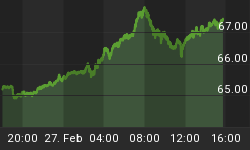Despite high vaccination rates in many parts of the world, people appear to be still wary of public transit, opting for personal vehicles, which is driving up demand for crude oil along with metals.
Called “the great car comeback” by Bloomberg, the trend is visible in locations as diverse as Tel Aviv, Moscow, and Bucharest, according to data from satellite navigation device maker TomTom.
Car sales in Europe soared by 63 percent last month to 1.39 million, which was high not just compared to last year, when sales of everything but handwash and toilet paper were subdued. The March registrations number was the highest monthly car sales figure since June 2019, Bloomberg noted in an earlier report.
Car sales rose in the first quarter, at double-digit rates. Electric cars—including plug-in hybrids—also increased strongly but constituted just 15 percent of total quarterly sales. This means gasoline cars are still the preferred option for many drivers, hence the good news for oil demand.
But the news is not so good for city dwellers, according to the more recent Bloomberg report. The great car comeback could be here to stay as one of the lasting effects of the pandemics on our lifestyle. This would mean heavier traffic jams in already congested cities, and longer commutes for those who will still be working from an office. Before that, however, people will be traveling for pleasure.
“People have a lot of cash in their pockets, and as lockdowns ease places will open up and allow those kind of leisure trips that may have been blocked,” one of the founders of Energy Aspects, Richard Bronze, told Bloomberg.
All this may change in the longer term as governments plan or mull over bans on gasoline cars. For now, however, gasoline is having a golden era.
By Irina Slav for Oilprice.com
















